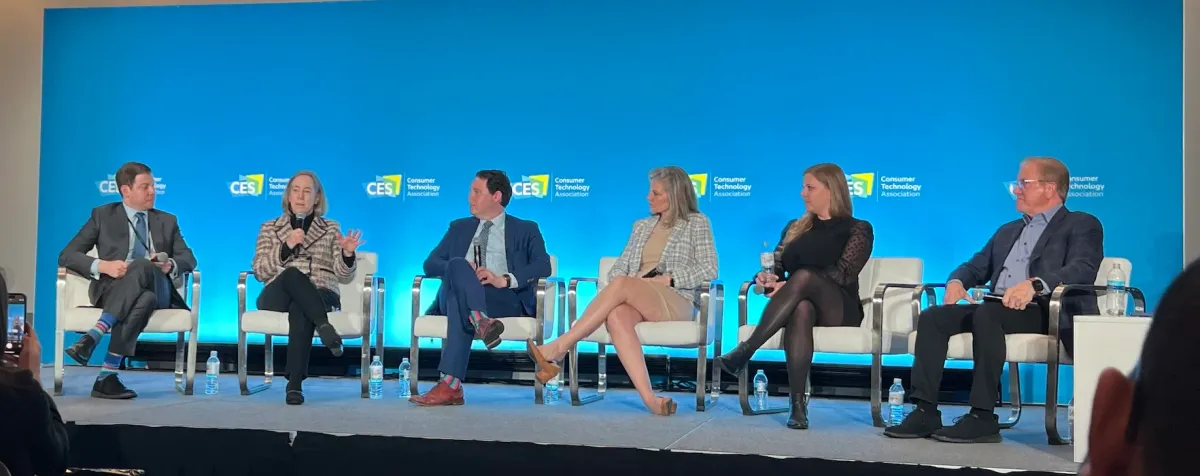CES 2024: NTIA and House Commerce Weigh in on Spectrum Policy
Reinstating FCC auction authority is the 'number one priority' of the Energy and Commerce Committee Chair.
Jake Neenan

LAS VEGAS, January 12, 2024 – A senior National Telecommunications and Information Administration advisor and the chief lawyers for both Democratic and Republican sides of the House Subcommittee on Communications and Technology talked about their spectrum policy priorities on Thursday at CES.
The group touted U.S. wins at the World Radiocommunication Conference in Dubai, as well as lawmakers’ goals for spectrum auction authority heading into 2024.
World Radio Congress
Going into the conference, in which representatives from around the world meet to coordinate spectrum usage, “the 6 GigaHertz (GHz) issue was the top priority of the U.S. government,” said Phil Murphy, a senior advisor at the NTIA.
The band was set aside in 2020 by the Federal Communications Commission for unlicensed use in the United States, but some countries like China wanted to see some of the band tapped for 5G mobile use, Murphy said.
The U.S. delegation was ultimately able to deliver in December: the conference decision set aside 700 MegaHertz (MHz) for mobile, but left the door open for regulatory agencies to approve unlicensed use throughout the band.
That’s a win for the American Wi-Fi industry: the Wi-Fi alliance announced its official Wi-Fi 7 certification on Monday ahead of the tech conference. The new generation supports wider spectrum channels and multi-link operation, both of which will make use of the 1,200 MHz of real estate in the 6 GHz band.
“We’re really excited by the results,” Murphy said. “We’re really excited to see 6 GHz moving forward, not just here in the United States, but in other parts of the world as well.”
Auction authority
The Federal Communications Commission’s authority to auction and issue licenses for the commercial use of electromagnetic spectrum expired for the first time in March 2023. That’s not an issue for technologies like Wi-Fi, which don’t require such licenses to operate in bands set aside for unlicensed use, but it is important for ever-expanding 5G networks and wireless broadband.
“The Chair’s number one priority is to reauthorize the FCC spectrum auction authority that expired in March,” said Kate O’Connor, chief counsel for the Republican majority on the communications and technology subcommittee. “Even if it hasn’t been public, there’s been a lot going on behind the scenes.”
Jennifer Epperson, chief counsel for the Democratic side of the subcommittee, and Murphy, the NTIA advisor, agreed on the importance of the issue.
“I think reauthorizing the FCC’s spectrum auction authority is a priority for the administration as well,” he said. “There’s probably spectrum that the FCC has available to auction right now, but they can’t because they don’t have the authority to do so.”
At a House oversight hearing in November, FCC Chairwoman Jessica Rosenworcel said “I have a bunch of bands sitting in the closet at the FCC,” pointing to 550 MHz in the 12.7-13.25 GHz band as spectrum the agency could go to auction with “relatively quickly.”
Efforts at blanket reauthorization have stalled publicly since a bill cleared the House Energy and Commerce Committee in May, but a stopgap measure allowing the Commission to issue licenses that had been purchased before the lapse was signed into law in December.
“With the funding bills coming up, we’re taking a look and hoping that we can turn this on as soon as possible,” O’Connor said.









Member discussion